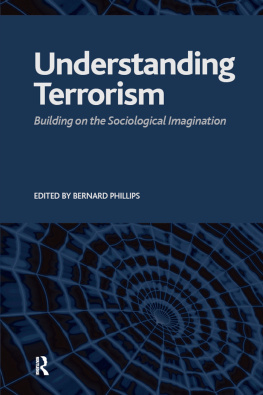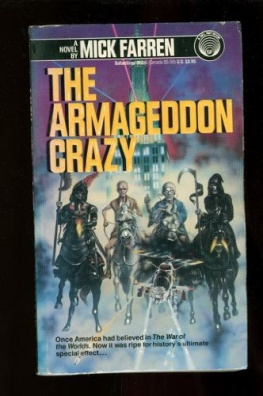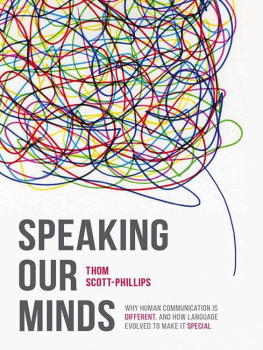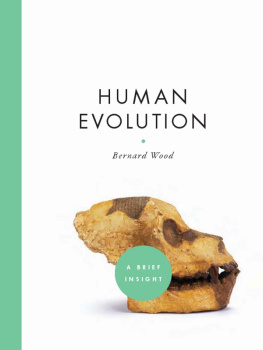Armageddon or Evolution?
Advancing the Sociological Imagination
A Series from Paradigm Publishers
Edited by Bernard Phillips and J. David Knottnerus
Goffman Unbound! A New Paradigm for Social Science
By Thomas J. Scheff (2006)
The Invisible Crisis of Contemporary Society: Reconstructing Sociologys Fundamental Assumptions
By Bernard Phillips and Louis C. Johnston (2007)
Understanding Terrorism: Building on the Sociological Imagination
Edited by Bernard Phillips (2007)
Armageddon or Evolution? The Scientific Method and Escalating World Problems
By Bernard Phillips (2008)
Postmodern Cowboy: C. Wright Mills and a New 21st-Century Sociology
By Keith Kerr (2008)
Struggles before Brown: Early Civil Rights Protests and Their Significance Today
By Jean Van Delinder (2008)
The Treadmill of Production: Injustice and Unsustainability in the Global Economy
By Kenneth A. Gould, David N. Pellow, and Allan Schnaiberg (2008)
Bureaucratic Culture and Escalating Problems: Advancing the Sociological Imagination
Edited by J. David Knottnerus and Bernard Phillips (2009)
Forthcoming
Ritual as a Missing Link within Sociology: Structural Ritualization Theory and Research
By J. David Knottnerus (2009)
Armageddon or Evolution?
THE SCIENTIFIC METHOD AND
ESCALATING WORLD PROBLEMS
Bernard Phillips
First published 2009 by Paradigm Publishers
Published 2016 by Routledge
2 Park Square, Milton Park, Abingdon, Oxon OX14 4RN
711 Third Avenue, New York, NY 10017, USA
Routledge is an imprint of the Taylor & Francis Group, an informa business
Copyright 2009, Taylor & Francis.
All rights reserved. No part of this book may be reprinted or reproduced or utilised in any form or by any electronic, mechanical, or other means, now known or hereafter invented, including photocopying and recording, or in any information storage or retrieval system, without permission in writing from the publishers.
Notice:
Product or corporate names may be trademarks or registered trademarks, and are used only for identification and explanation without intent to infringe.
Library of Congress Cataloging-in-Publication Data
Phillips, Bernard S.
Armageddon or evolution?: the scientific method and escalating world problems / Bernard Phillips.
p. cm. (Advancing the sociological imagination)
Includes bibliographical references and index.
ISBN 978-1-59451-606-1 (hardcover: alk. paper)
ISBN 978-1-59451-607-8 (paperback: alk. paper)
1. SociologyMethodology. 2. ScienceMethodology. 3. Social problems.
4. Applied sociology. 5. Sociology. I. Title.
HM511.P55 2008
301.01dc22
2008024386
ISBN 13 : 978-1-59451-606-1 (hbk)
ISBN 13 : 978-1-59451-607-8 (pbk)
Designed and typeset by Straight Creek Bookmakers.
Contents
IS IT POSSIBLE TO SEE WORLD PROBLEMS as continuing to increase and yet also see a direction for solving them? Can we come to believe that the continued existence of the human race is now at stake yet also come to believe that we can indeed learn to escape from our highly threatening situation? Given what we hear and see on the mass media from one day to the next, can we still retain what Barack Obama called the audacity of hope? Is it indeed possible to be both extremely realistic about the current situation of humanity and also optimistic about the possibility thatfollowing Thornton Wilders The Skin of Our Teethwe can find a way out of escalating world problems?
My own immersion into the knowledge developed throughout the social sciences has convinced me that at this time in history the fate of the human race hangs in the balance. My reference to Armageddon in the title is by no means an effort to hype the book: I genuinely believe that we humans have only a limited time to gain understanding of the forces threatening us and to develop effective means to counter those forces. In The Invisible Crisis of Contemporary Society (Phillips and Johnston, 2007) I and my coauthor documented our increasing problems. And since many of them are invisibleby contrast with, say, global warming, threats from terrorist groups, or nuclear proliferationthey are all the more threatening.
To illustrate our escalating yet invisible problems, there is a widening aspirations-fulfillment gap throughout the world, or a growing disparity between what people want and what they are actually able to get. The scientific, industrial, and technological revolutions over the past five centuries have opened up for all of us previously undreamed possibilities, and there are almost no limits to our material and nonmaterial desires. Millionaires want to become multimillionaires, and multimillionaires want to become billionaires, and almost all of us including the extremely wealthy want to achieve ever more of a sense of self-worth, of living in a truly meaningful way, and of having close personal relationships. Given these accelerating aspirations, they are accompanied by increasing failures to fulfill them, and the resulting invisible aspirations-fulfillment gap is working to accelerate world problems.
One such fundamental problem that remains largely invisible is the increasing gap throughout the academic world between the ideal of following the scientific method and the actual practiceswhether in the social, biological, or physical sciencesthat differ sharply from that ideal. For example, that ideal requires scientists to open up to all knowledge that is relevant to the problems under investigation. My overall assumption is that human behavior is incredibly complex, as illustrated by our escalating unsolved world problems. Yet there are no fewer than 46 distinct Sections of the American Sociological Association (ASA) populated by sociologists who only rarely communicate with those in other Sections. Further, there are 397 specialized topics within sociology that are discussed in the five volume Encyclopedia of Sociology (Borgatta and Montgomery, 2000), and once again we find limited communication across these many fields of knowledge, as indicated by the limited number of cross-references throughout these specialized areas.
This problem of specialization by scientists coupled with limited communication with scientists in other fields is by no means restricted to sociology. We find it equally in the other social sciences: in psychology, anthropology, political science, economics, and history. And we find it as well throughout the biological and physical sciences. One of the repercussions of such extreme specialization with limited communication across these fields is the escalating cost of higher education, far exceeding the rising cost of living. Given a much broader approach to knowledge, far fewer professors would be needed to cover the range of subjects that students study, and the coverage would be more educational for students, since they would learn to integrate their specialized knowledge to a greater degree. This same argument could also be extended to the many highly specialized fields throughout medicine, where accelerating costs also far exceed the rising cost of living. Here, the ideals of medicine also call for the integration of knowledgejust as every part of the human body interacts with every other partyet what we all encounter is the general lack of broad understanding on the part of medical specialists. And these problems of the costs of specialization with limited communication remain largely invisible, for Ive never seen any discussion of them within discussions of the rising costs of education and medical care and what might be done about them. As a result, what we have in the modern world is not the full use of the scientific method but no more than a partial use of that method, which abandons its full potential for solving problems. This is a most serious matter as social problems throughout the world continue to escalate.









